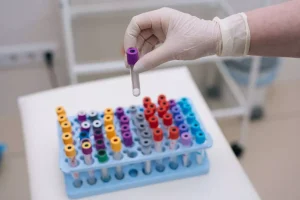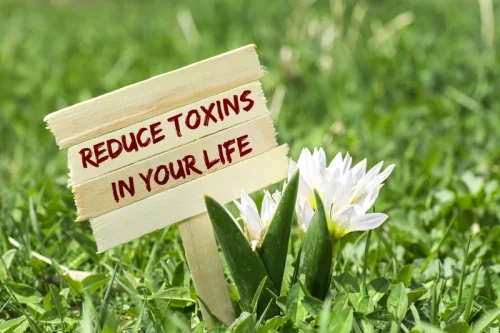Alcohol, aging, and innate immunity
Category : Sober living

Microbiota produces neurotransmitters, tryptophan metabolites, fermentation metabolic by-products such as short-chain fatty acids (SCFAs), the release of cytokines by immune cells and gut hormone signaling. Some of these molecules can activate the vagus nerve or reach the brain and liver via systemic circulation. Alcohol consumption causes dysregulation in the intestinal microbiota, which leads to an alteration in this communication and subsequently causes alterations in brain and liver functions. Several lines of evidence show that the number and function of B-cells are reduced by chronic alcohol. For example, chronic alcoholics exhibit loss of B-cells in the periphery and a reduced capacity to generate protective antibodies (Cook et al. 1996). In addition, chronic alcohol can decrease the number of B-cells that produce an antibody type called IgA5 in one of the layers of mucous membranes (i.e., the lamina propria), which is indicative of altered mucosal immunity (Lopez et al. 1994).

Opposing Effects of Alcohol on the Immune System
Recent studies suggest that the increase in IgA levels may be mediated by an ethanol- induced elevation of the enzyme neuronal nitric oxide synthase (nNOS) in the animals’ intestine, because inhibition of nNOS before ethanol injection suppressed the IgA increase (Budec et al. 2013). Male rats on a liquid diet with 35% of calories coming from ethanol also showed enhanced mRNA half-life and protein expression of LPS-induced TNF-α by increasing TNF-α in liver monocytes/macrophages (Kishore, McMullen et al. 2001). In humans, peripheral blood monocytes isolated from 16 hospitalized male patients with alcoholic hepatitis (but no detectable blood alcohol levels at https://ecosoberhouse.com/ the time of blood collection) had significantly increased TNF-α production in response to LPS stimulation when compared to monocytes from healthy volunteers (McClain and Cohen 1989). The effect of the hormonal peptide adiponectin on innate immunity, specifically on anti-inflammatory cytokine production and activity, is also worth noting. Adiponectin is secreted by fat cells (i.e., adipocytes) and has been shown to alleviate steatosis, inflammation, and liver damage in animal models (Xu et al. 2003). Recent evidence suggests that adiponectin moderates alcohol-induced production of pro-inflammatory TNFα and promotes expression of IL-10 (Mandal et al. 2010a).
Overview of the Human Immune System
- Another small peptide, ghrelin, which is produced mainly in the gut but also in the liver, has been shown to promote antifibrotic and hepatoprotective effects in both animals and humans with hepatic fibrosis (Moreno et al. 2010).
- Potential intracellular target points for (i) acute alcohol and (ii) chronic alcohol in a stylized cell.
- Alcohol has been flying off the shelves as people try to combat boredom during lockdown, with some reports estimating that alcoholic beverage sales surged by 55 percent toward the end of March.
- 3The HIV (or SIV) set point is the stable viral load that is established in an HIV-infected person after the initial phase of the infection, when the person’s immune systems tries to fight the virus.
Similarly, an increased percentage of CD8 T cells expressing HLA-DR and CD57 was reported in the group of male alcoholics with self reported average alcohol consumption of approximately 400g/day for approximately 26 years (Cook, Ballas et al. 1995). Mice that consumed 20% (w/v) ethanol in water for up to 6 months, also showed an increased percentage of activated T cells as measured by increased expression of CD43, Ly6C, rapid IFN-γ response, and increased sensitivity to low levels of TCR stimulation (Song, Coleman et al. 2002, Zhang and Meadows 2005). Taken together, these studies suggest that chronic alcohol-induced T cell lymphopenia increases T cell activation and homeostatic proliferation resulting in increased proportion of memory T cells relative to naïve T cells. In summary, several in vitro and in vivo studies demonstrate that ethanol modulates the function of innate immune cells (monocytes and DCs) in a dose and time dependent manner (Figure 1). Acute high dose exposures inhibit whereas long-term treatments stimulate proinflammatory cytokine production. In addition, in vivo consumption of moderate amounts enhances phagocytosis and reduces inflammatory cytokine production whereas chronic consumption of large doses inhibits phagocytosis and production of growth factors.

Health Categories to Explore
However, its anti-inflammatory, hepatoprotective effects are contingent on the expression of other cytokines, and its inhibitory effect on IL-6 expression can delay liver regeneration and increase steatosis. IL-10 expression is moderately to highly increased in ALD and, along with that of IL-6 and IL-8, is also upregulated in alcoholic patients without signs of liver disease. IL-10 acts only on immune cells expressing its cognate receptors and facilitates sustained activation of the transcription factor STAT3 in Kupffer cells, thus inhibiting does alcohol weaken your immune system inflammation. Although the exact molecular mechanisms through which alcohol activates innate immune cells are not entirely understood, there is increasing evidence for the close relationship between the effects of alcohol on the gastrointestinal (GI) tract and injury to the liver. Heavy alcohol consumption changes the composition of microbial communities in the GI system, tipping the balance toward more pathogenic species. Recent observations in animal models suggest that these changes are involved in promoting ALD (Yan and Schnabl 2012).

- The innate immune response to a pathogen is followed by an adaptive immune response that is activated only after the body is exposed to the pathogen for the first time and which is specific to that one pathogen.
- Moreover, spontaneous IgA synthesis by peripheral blood mononuclear cells (PBMCs)— a mixed population of various white blood cells that also includes B cells—was higher in PBMCs isolated from alcoholic patients with liver disease compared with controls (Wands et al. 1981).
- This defective neutrophil recruitment could be partially restored by localized chemokine administration (Quinton et al. 2005).
- In an unstimulated milieu, the above mentioned p100 processing is inhibited by degradation of NF-κB-inducing kinase (NIK) [43].
Alcohol and the Adaptive Immune Response

